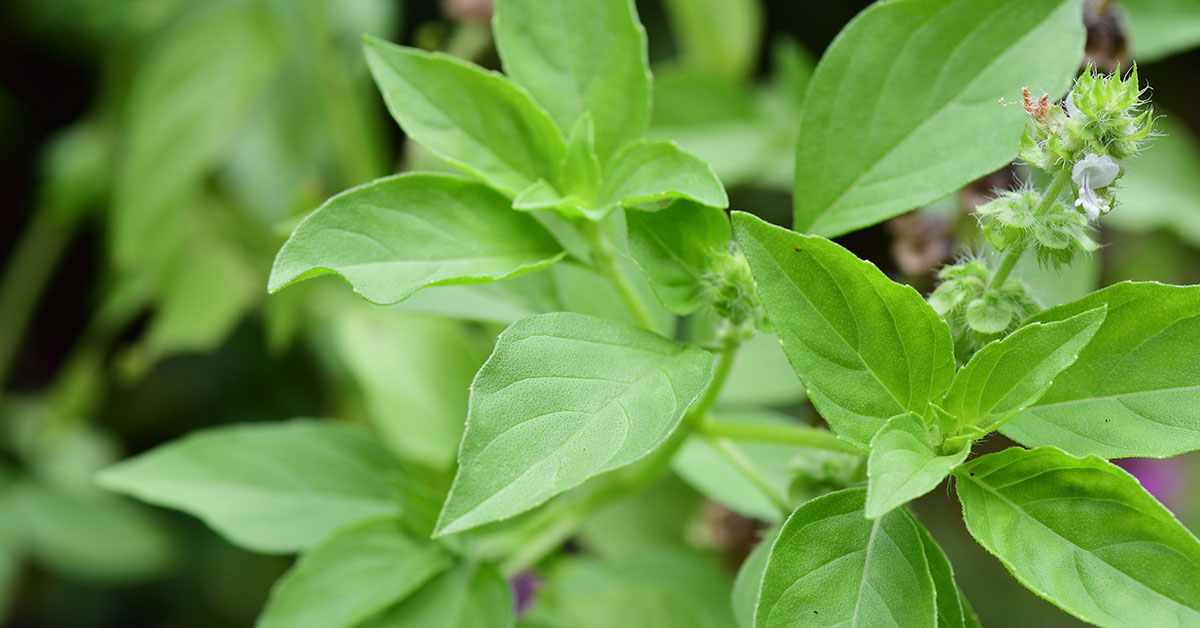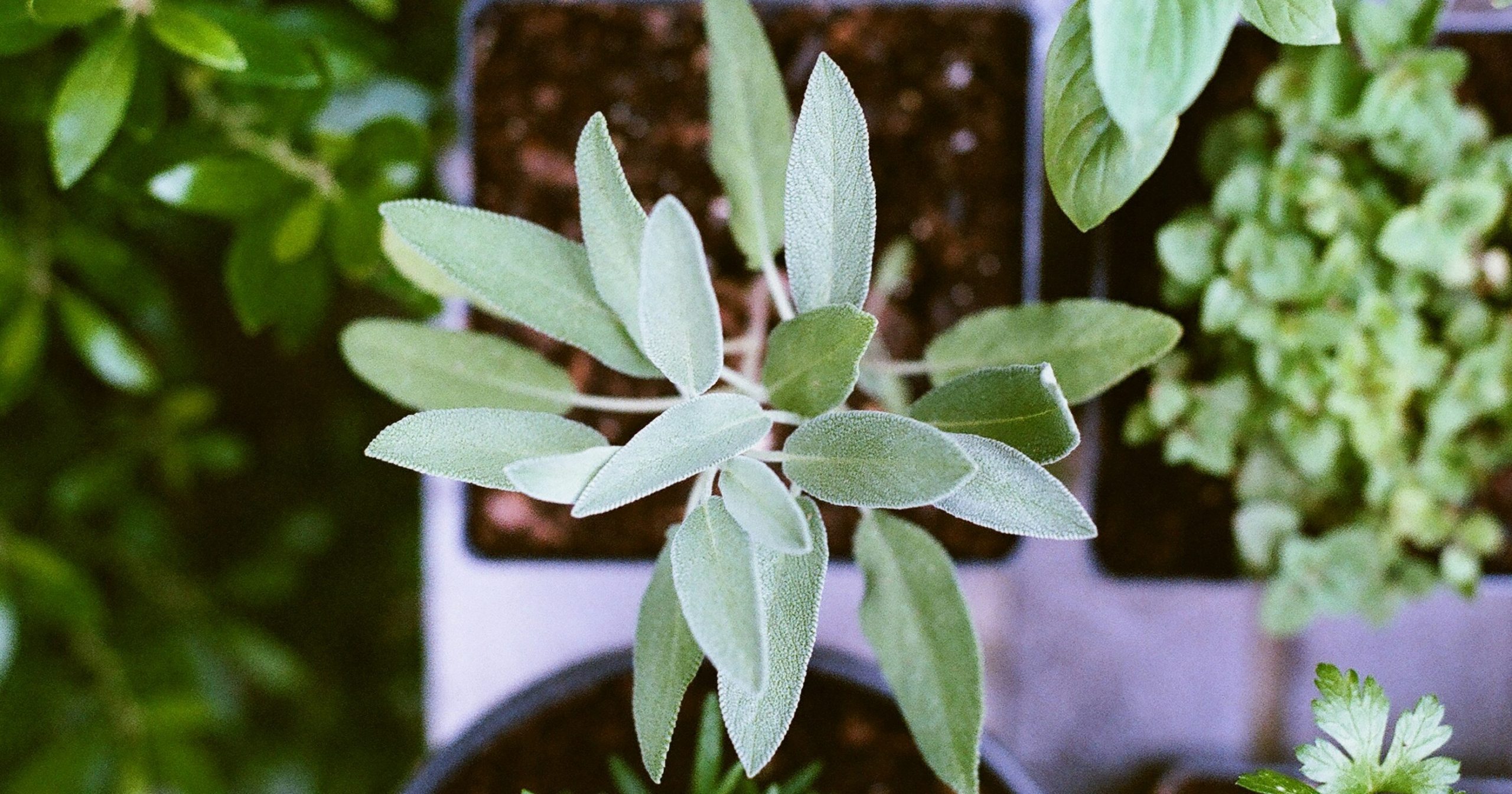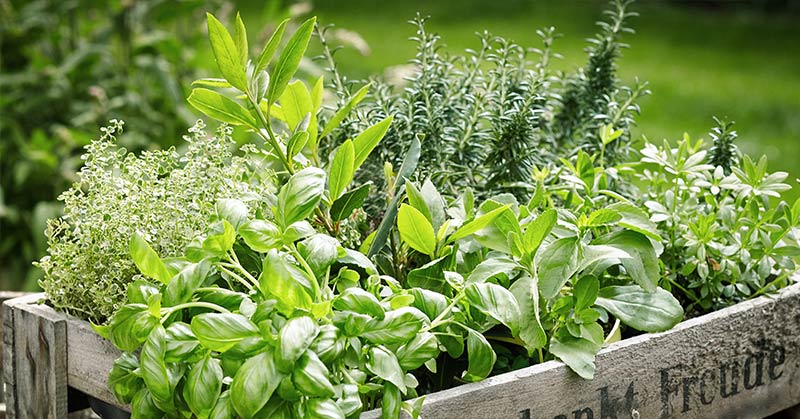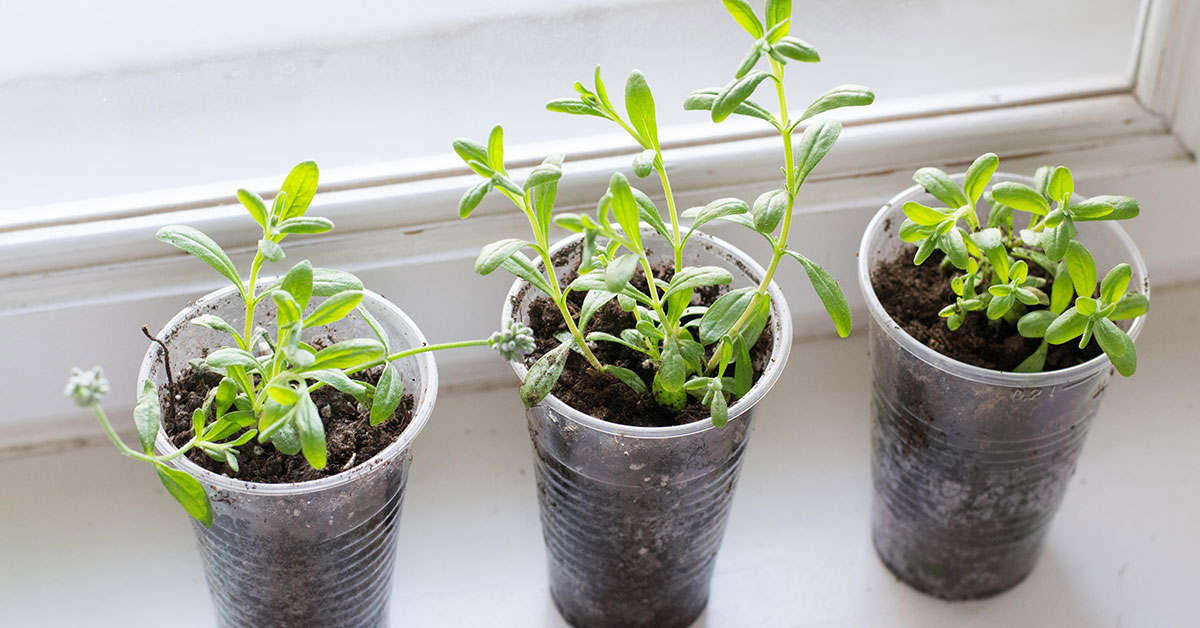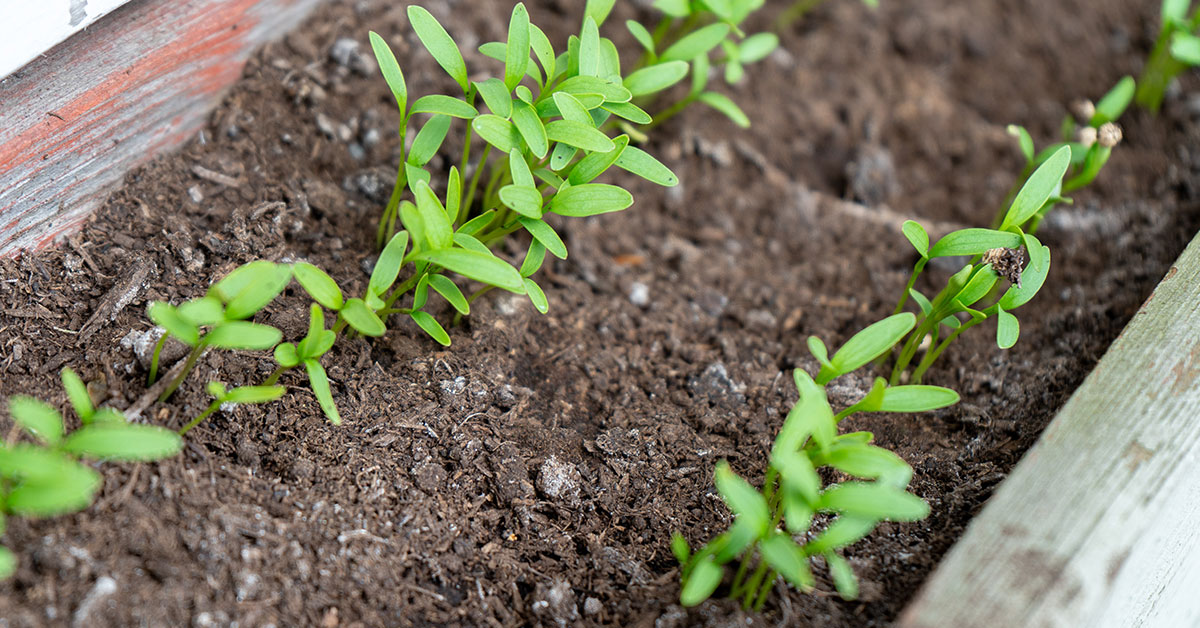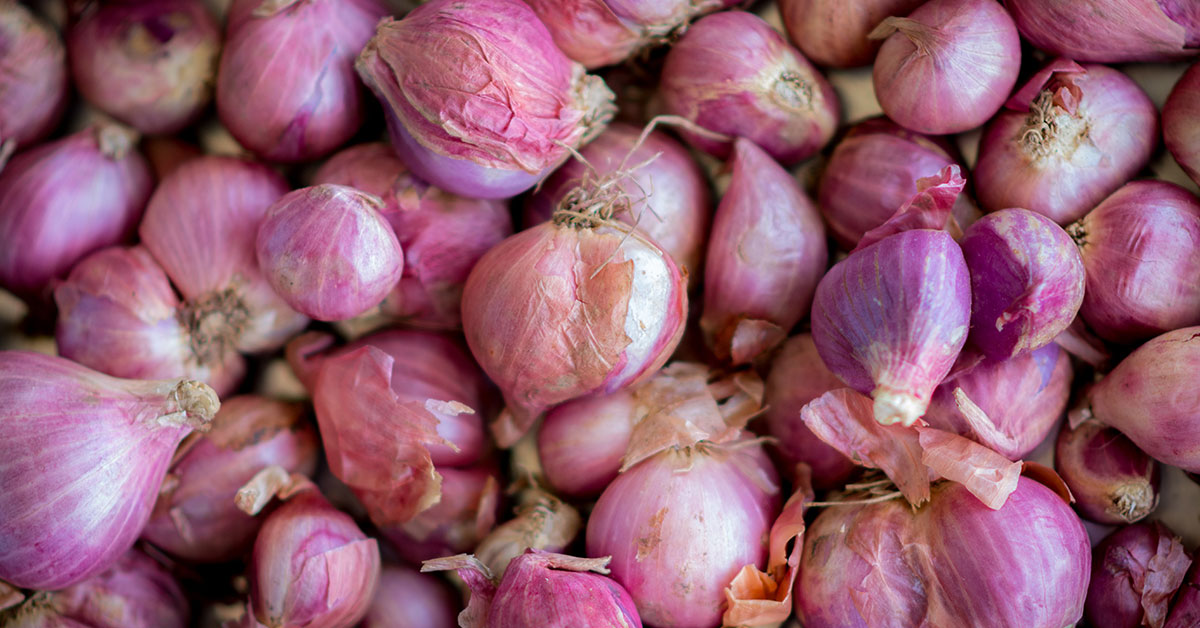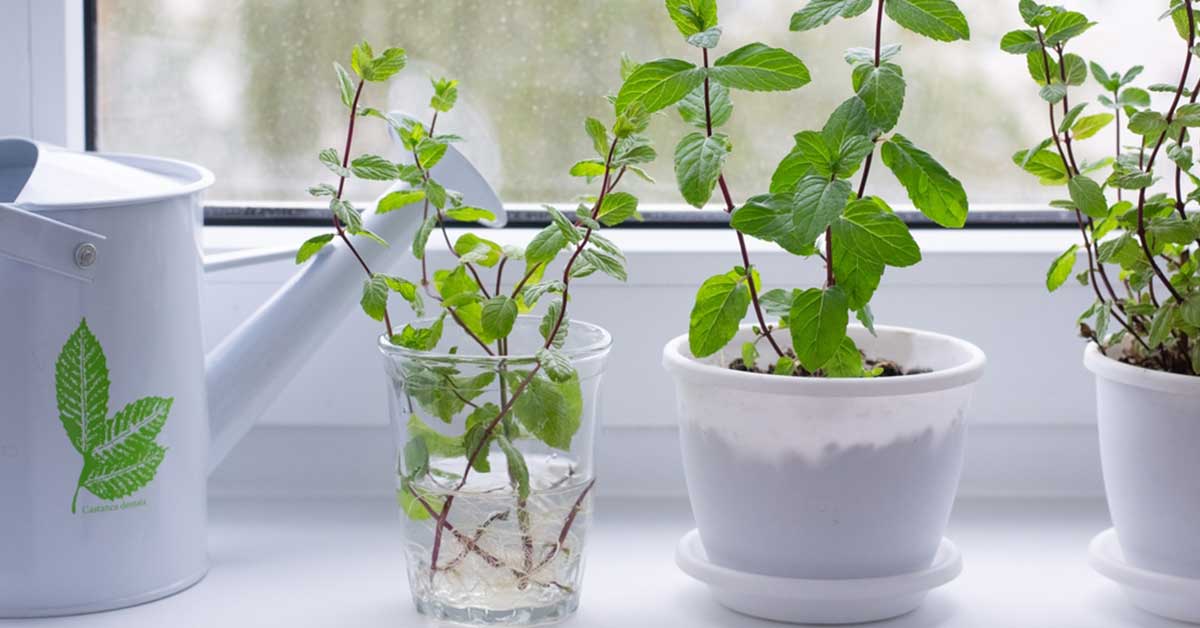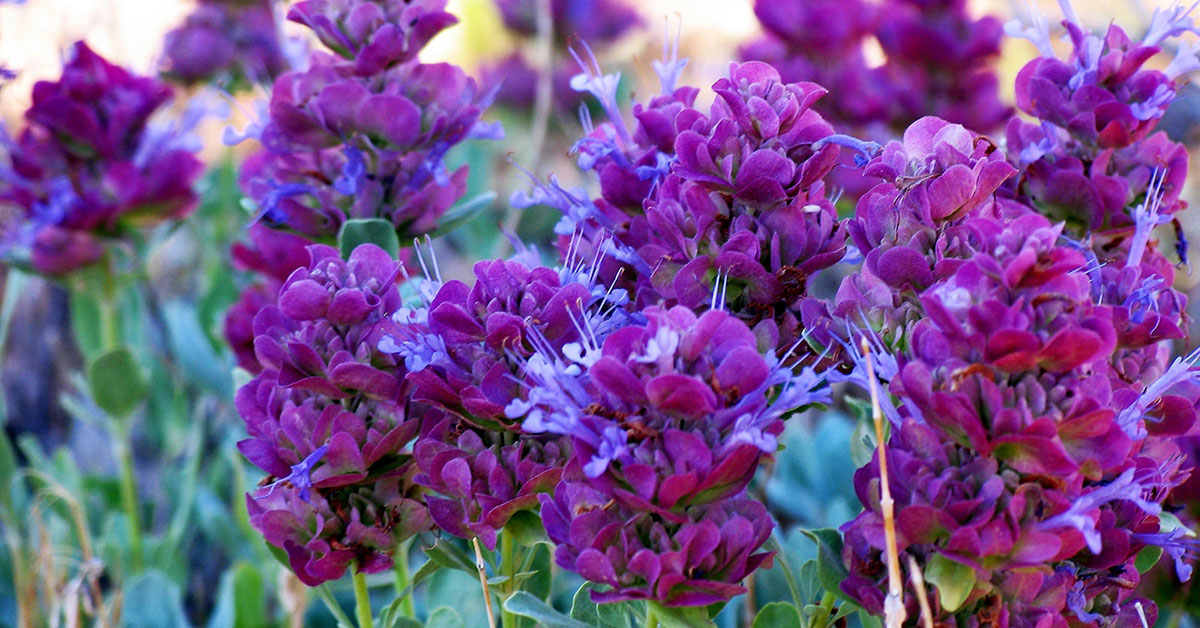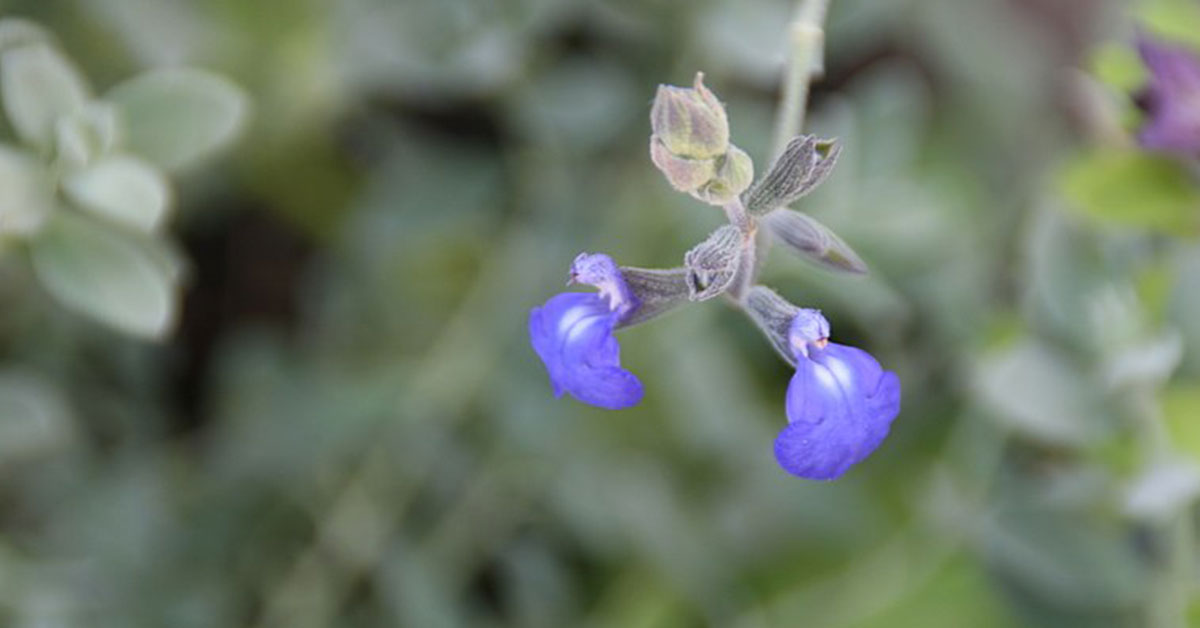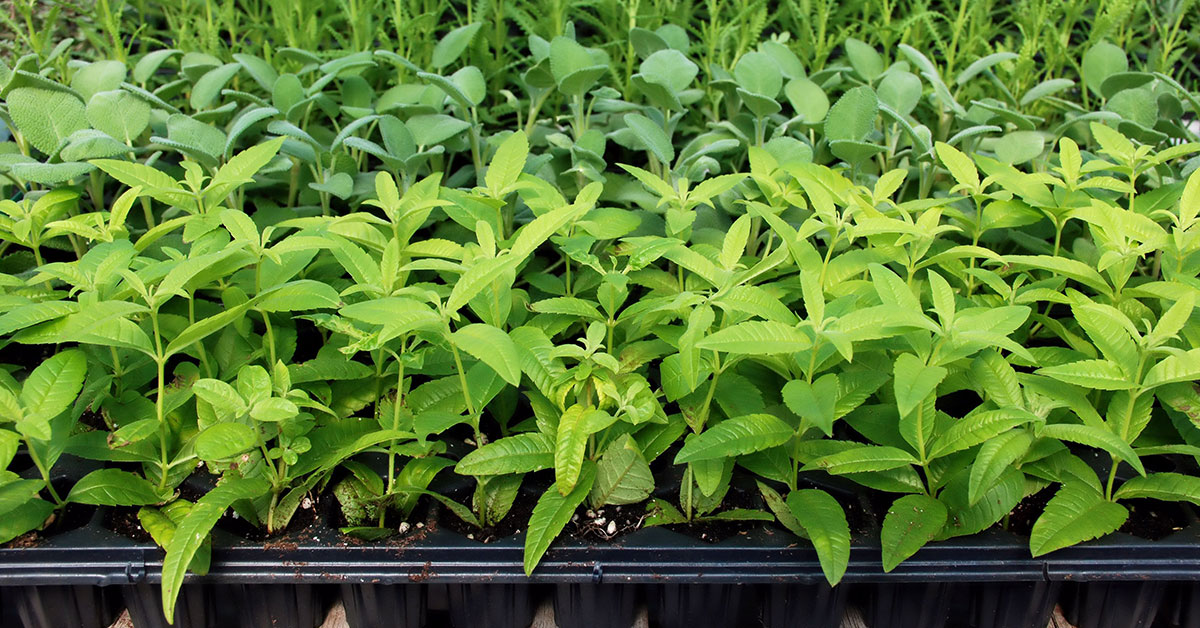Thai Lemon Basil is an aromatic herb that is highly prized in Southeast Asian cuisine. Also known as “Maenglak” in Thai, this herb has a unique flavor that sets it apart from other types of basil. Its citrusy and slightly spicy taste makes it a popular ingredient in Thai curries, stir-fries, and salads. In addition to its culinary uses, Thai Lemon Basil is also believed to have medicinal properties and is used in traditional Thai medicine. In this blog post, we will explore the culinary and health benefits of Thai Lemon Basil and provide some tips on how to use this flavorful herb in your cooking.
What is a Thai Lemon Basil?
Thai Lemon Basil, also known as Bai Manglak or Maenglak in Thai, is a type of basil that is commonly used in Thai cuisine. It is a member of the mint family and is known for its strong lemony aroma and flavor. The leaves of the Thai Lemon Basil plant are typically dark green and slightly glossy, with a distinct lemon scent that is released when crushed or torn.
Unlike traditional sweet basil, Maenglak has a slightly spicy and peppery flavor that pairs well with savory dishes. It is commonly used in soups, curries, stir-fries, and salads. Its unique flavor profile makes it a popular ingredient in many Thai dishes, and it is often used in conjunction with other herbs and spices such as lemongrass, cilantro, and ginger.
In addition to its culinary uses, Thai Lemon Basil also has a variety of medicinal properties. It has been used in traditional Thai medicine as a natural remedy for a variety of ailments such as coughs, colds, and digestive issues. The essential oils found in Thai Lemon Basil have also been shown to have antibacterial and antifungal properties, making it a useful ingredient in natural cleaning and skincare products.
Overall, this plant is a versatile and tasty herb that is a staple in Thai cuisine. Its unique flavor and aroma make it a popular ingredient in many dishes, and its medicinal properties make it a valuable addition to any herb garden.
What makes Thai Lemon Basil different from other varieties?
Thai Lemon Basil is a unique variety of basil that is commonly found in Southeast Asian cuisine. Unlike other types of basil, Maenglak has a distinct citrus flavor that sets it apart from the rest. This flavor is due to the presence of a natural essential oil called citral, which is also found in lemongrass and lemon verbena.
The leaves are also different from other basil varieties. They are slightly smaller and have a slightly jagged edge. The color of the leaves is also different, with a darker green on top and a slightly purplish hue underneath. The aroma of Thai Lemon Basil is also stronger and more pungent than other basil varieties, making it a popular ingredient in many Thai dishes.
Another unique characteristic of Maenglak is its versatility. It can be used in a wide variety of dishes, from soups and curries to salads and stir-fries. Its citrus flavor pairs well with spicy and sour ingredients, making it a popular choice in many Thai recipes.
Overall, this herb is a unique and flavorful herb that adds a distinct taste to any dish. Its versatility and strong flavor make it a popular ingredient in Southeast Asian cuisine and a must-try for any food enthusiast.
How to grow Thai Lemon Basil
Thai lemon basil is a fragrant and flavorful herb that is commonly used in Thai cuisine. Growing this herb in your garden is easy and requires minimal maintenance. Here are some tips on how to grow Thai lemon basil:
- Choose the right location: This herb needs a lot of sunlight to grow. Choose a location in your garden that gets at least 6 hours of direct sunlight every day.
- Prepare the soil: Maenglak thrives in well-draining soil. Make sure the soil in your garden is well-draining by adding compost or sand to it.
- Plant the seeds: Thai lemon basil seeds can be planted directly in the garden or in pots. If planting in pots, make sure they have drainage holes at the bottom and fill them with well-draining soil. Plant the seeds about ¼ inch deep and water them well.
- Water regularly: Maenglakl needs to be watered regularly, especially during hot and dry weather. Water the plants deeply and make sure the soil is moist but not waterlogged.
- Fertilize: Thai lemon basil benefits from regular fertilization. Use a balanced fertilizer once a month to promote healthy growth.
- Harvest: Maenglak can be harvested once the plants are about 6 inches tall. Pinch off the leaves and use them in your favorite Thai recipes.
By following these simple steps, you can enjoy fresh and flavorful Maenglak from your own garden.
Growing ips
Thai Lemon Basil is a wonderful herb to grow in your garden. It is easy to cultivate and requires very little maintenance. Here are some additional tips for growing Thai Lemon Basil:
- Soil and Water Requirements: Thai Lemon Basil prefers well-draining soil that is rich in organic matter. It also requires consistent moisture, so make sure to water it regularly. However, be careful not to overwater, as this can lead to root rot.
- Sunlight Requirements: Maenglak thrives in full sun. Make sure to plant it in an area that receives at least six hours of sunlight per day.
- Fertilizing: Maenglak does not require heavy fertilization. However, you can feed it with a balanced organic fertilizer once a month during the growing season to enhance its growth.
- Companion Planting: Maenglak is a great companion plant for other herbs and vegetables like tomatoes, peppers, and eggplants. It can also repel pests like mosquitoes and whiteflies.
- Pruning: Regular pruning of Maenglak will keep it bushy and prevent it from becoming too leggy. Pinch off the tips of the stems regularly to encourage branching.
By following these tips, you can ensure that your Thai Lemon Basil thrives in your garden and provides you with an abundance of delicious and aromatic leaves.
Common problems
As much as we love Thai Lemon Basil for its unique flavor and aroma, it can be a bit challenging to grow. Here are some common problems that gardeners face when trying to grow Maenglak:
- Poor Germination: Maenglak seeds can be difficult to germinate, especially if the conditions are not favorable. The seeds need warmth, moisture, and good soil to sprout. If you’re having trouble with germination, try using a seed-starting mix, keep the soil moist, and make sure the temperature is between 70-80°F.
- Pests: Maenglak is prone to pests such as aphids, spider mites, and whiteflies. These pests can cause damage to the leaves, stunting growth, and even kill the plant. To prevent pest infestations, keep the plants well-watered, remove any dead or damaged leaves, and use insecticidal soap or neem oil if necessary.
- Diseases: Maenglak can be susceptible to fungal diseases such as powdery mildew and downy mildew. These diseases can cause leaves to turn yellow or brown and eventually die. To prevent these diseases, make sure the plants are well-spaced to promote good air circulation, and avoid overwatering.
- Nutrient Deficiencies: Thai Lemon Basil requires a balanced diet of nitrogen, phosphorus, and potassium to grow healthy and strong. If the leaves are turning yellow or the plant is not growing well, it may be a sign of nutrient deficiencies. To remedy this, fertilize the plants with a balanced fertilizer, or add compost or manure to the soil.
By being aware of these common problems, you can take the necessary steps to prevent them and ensure a healthy and thriving Thai Lemon Basil plant.
Uses
Thai Lemon Basil is a popular herb that is widely used in Thai cuisine. It is loved for its unique flavor, which is a combination of lemon and basil. This herb has a strong citrus scent and a slightly spicy flavor. The leaves of the plant are commonly used in a variety of dishes, and the plant is also used for its medicinal purposes. In this article, we will discuss the uses of Maenglak.
- Culinary Uses: Maenglak is used extensively in Thai cooking. It is commonly used in soups, curries, stir-fries, and salads. It is also used in marinades, sauces, and dressings. The herb is known for its ability to enhance the flavor of food. It gives a refreshing zing to the dishes and adds a unique flavor to the food.
- Medicinal Uses: Thai Lemon Basil is used in traditional medicine to treat a variety of ailments. It is believed to have anti-inflammatory, antibacterial, and antifungal properties. It is also used to treat stomach ailments, including bloating, gas, and indigestion. The herb is also used to treat respiratory infections, fever, and headaches.
- Aromatherapy: Thai Lemon Basil is also used in aromatherapy. The herb has a refreshing and uplifting scent, which can help to reduce stress and anxiety. It is also used to promote mental clarity and focus. The essential oil of Maenglak is used in diffusers, candles, and air fresheners.
- Gardening: Thai Lemon Basil is a popular plant for home gardening. It is easy to grow and requires minimal maintenance. The plant can be grown indoors or outdoors, and it thrives in warm and humid conditions. The plant is also known for its insect-repelling properties, which makes it a great addition to the garden.
Thai Lemon Basil is a versatile herb that has a variety of uses. It is used in cooking, for its medicinal purposes, in aromatherapy, and in gardening. The herb is easy to grow and can be enjoyed by anyone who loves the unique flavor of lemon and basil. So, why not try using Maenglak in your next dish or grow it in your garden?
